Insight & Strategy: Don’t Ever Leave Me
Why Lacta, Greece’s top chocolate brand, subverted its messaging around love to deliver a domestic violence awareness campaign – resulting in 1 million organic views on YouTube
This article was originally published in Contagious I/O on 9 December 2021
Share this post
On 25 November, the International Day for the Elimination of Violence Against Women, Mondelez-owned chocolate brand Lacta released a four-minute film depicting a romantic relationship that turns abusive.
The film, called Don’t Ever Leave Me, was directed by award-winning director Argyris Papadimitropoulos, and begins as a typical love story. But there is a shocking twist, as the man becomes more possessive, the relationship descends into violence, which leads to femicide.
Created by Ogilvy Greece, Gerakas, the film ends with the stark statistic that (up until 25 November) 13 women have been murdered by men in 2021 so far, while thousands have been subject to abuse by those who claimed to ‘love’ them. ‘This is not love,’ reads the film, before directing viewers to The Diotima Centre, a non-profit, non-governmental women’s organisation, to learn more about the signs of physical and psychological abuse in a relationship.
‘True love is your right and we are here to defend it,’ finishes the film, before the credits roll. Since its release, the short film has gone viral in Greece, becoming the number one YouTube video and covered by national media.
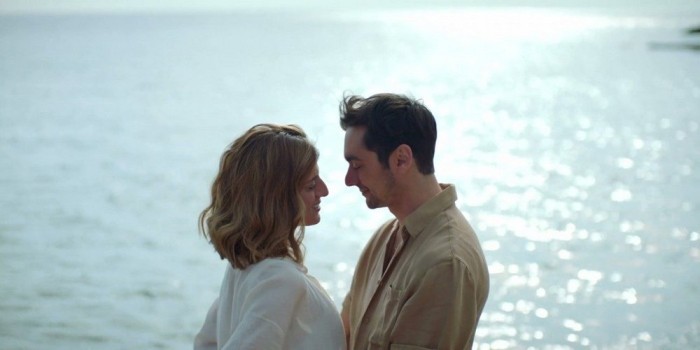
To find out more about why Lacta, a chocolate brand long-associated with romantic love, broached this serious issue, we spoke to Panos Sambrakos, chief creative officer of Ogilvy Greece, who told us that:
-
Consistency is key: Lacta has always spoken about love, and that has earned the brand the right to talk about this difficult issue
-
Striking the right tone was a challenge, so Ogilvy Greece worked with real testimonies for credibility and accuracy
-
The company didn’t put any media behind the campaign, it took off organically
-
If one woman is saved by learning the early signs of an abusive relationship from this campaign, it will have been a success
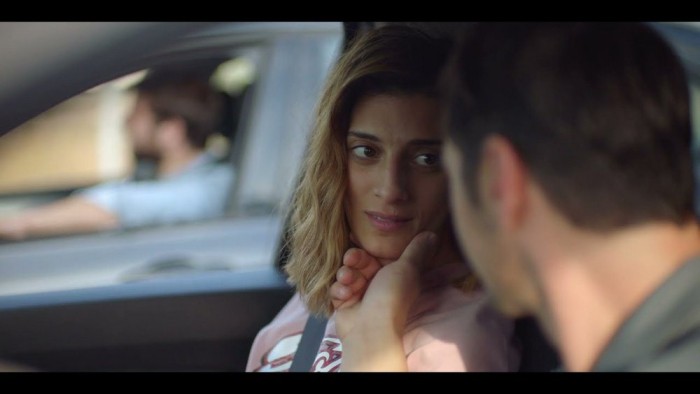
We know Lacta as a ‘romance’ brand from campaigns such as The Taste of Love, Make The Move, and Does Love Exist? Can you talk a bit about the brand and this positioning, and how it has evolved over the years?
Panos Sambrakos: Lacta has been telling love stories for ages. All the TV spots back in the 1990s were love stories, and they compared the feeling of falling in love to the sweetness of the chocolate. That was the whole idea behind it. The slogan translates to ‘Lacta – The sweetest part of your life’. So after doing many TV spots, 10-12 years ago, we started doing branded entertainment and expanding our stories in a longer format. We did a feature film that was released in cinemas in 2013 called Love in the End, which won three awards at Cannes, and then a few web series and TV films and other short films followed, that were always very popular.
They were usually released around Valentine’s Day – Lacta has always been about symbolising love. In Greece, it’s synonymous almost. Every Valentine’s Day, people go and buy flowers and Lacta chocolate, you don’t buy a different chocolate, Lacta means something. So three years ago, we continued to talk about love, but in a social context. We started defending the right of everybody to express their love to whoever they choose. So we talked for the first time about diversity and inclusion in love. We did the first campaign in Greece that featured gay couples, lesbian couples, people with disabilities, called Act For Love. We talked about racism and mixed couples. In Greece, there is a lot of tension around all these matters. This campaign put Lacta on the map as a brand doing social awareness campaigns, always consistent with love.
The word 'femicide' suddenly became part of the vocabulary in all the articles and news reportsPanos Sambrakos, Ogilvy Greece
What we did this year came out of the cultural tension around the violence against women. In January, the #MeToo movement finally hit our shores, when a Greek Olympic athlete Sofia Bekatorou came out saying that she had been sexually assaulted during the 1998 Olympic Games by a member of the Greek sailing federation. This snowballed into many women coming out and telling their story. Then, during the lockdown, domestic violence increased around the world and the word 'femicide' suddenly became part of the vocabulary in all the articles and news reports, talking about how many women were killed by their partners during this year.
So there was this thing building up, boiling in Greek society and we needed to talk about it. The insight was that many of these crimes were attributed to love. They were called crimes of passion, or you had relatives of the perpetrator saying, ‘He killed her because he loved her too much.’ So we thought it was our place, because we have been talking about love all these years, to say, ‘Listen, this is not love. This is something different, you need to be aware of it, and you need to know the signs to get out of this type of relationship early on.’ So that’s why we felt that it was our right and our obligation to talk about it. Lacta is really top of mind for Greek consumers – it’s a major, mainstream brand. So if a mainstream brand talks about this issue, it becomes mainstream.
We wanted to lead the discussion and be the first to talk about it in a massive wayPanos Sambrakos, Ogilvy Greece
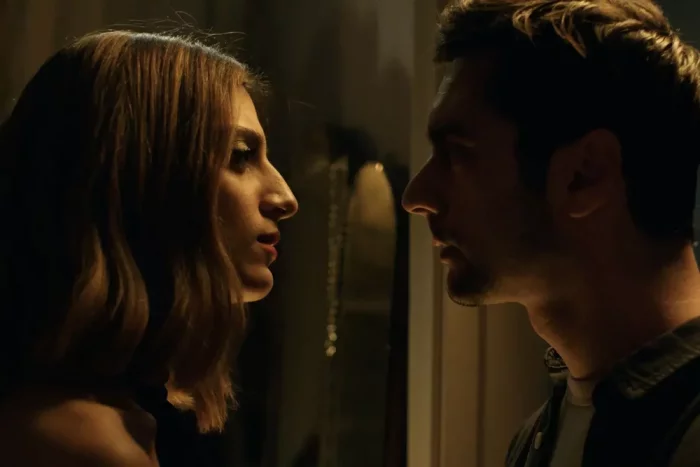
What’s Lacta’s key business challenge in Greece?
To broaden its target audience and its consumer base. For years, Lacta has been targeting 18- to 24-year-olds, young adults, mostly women, but men as well. But they have been trying to expand this with new product lines that appeal to different kinds of tastes, while also staying relevant to the youth.
Did Ogilvy come to Lacta with this idea?
Yes, we came up with it ourselves. Because we have been working on the Lacta account for more than 15 years now, we know the marketing team’s sensibilities well. We were aware of this tension in our society, so we came to them with this idea, and they loved it. They were stunned. They didn’t have any money to produce this, so they dropped everything, they moved things around to do it in time – we presented this at the beginning of October and we had a fixed deadline, 25 November, which was the International Day for the Elimination of Violence Against Women. We knew that because this thing has been building up in our country, somebody would talk about it. We wanted to lead the discussion and be the first to talk about it in a massive way.
When you are talking about what love is not, you are also talking about what love isPanos Sambrakos, Ogilvy Greece
Previous Lacta campaigns are positive, while this one ends in tragedy. Were there any fears at Lacta about tackling such a serious issue?
They were some fears, especially from people living outside Greece and not experiencing the tension here, that a chocolate brand should always portray a positive message. But we explained that anybody that will see this film will appreciate the love they have in their life. When you are talking about what love is not, you are also talking about what love is, and you appreciate the person you’re with. You understand that everybody has a right to have love in their lives, and it’s a precious thing.
What’s your goal with this campaign?
Our goal was to become the talk of the town. We wanted everybody to talk about this campaign and appreciate Lacta for coming forward with this message, even if it was risky. This could not be pushed with media. Either people, society, news reporters would embrace it or not. So we timed it to come out four days before the International Day for the Elimination of Violence Against Women. The next day, it was the number one trending video on YouTube in Greece, and it stayed there for more than a week.
It was immediately picked up by all the news media outlets, both websites and TV stations, every talk show in Greece played the whole four minutes on air, without us paying for it, and discussed it. Serious talk shows devoted their whole hour to violence against women, and they even interviewed us. They made a big issue out of this. We have more than 1 million views on YouTube and they’re all organic, and 60% of them, if you look into the analytics, come from outside sources. So that means people viewed the YouTube video on other websites that were embedding it. Clearly, we managed to do what we set out to do.
We were not doing something just to shock people. We were doing this to alert people. And really, the best drama puts a mirror to societyPanos Sambrakos, Ogilvy Greece
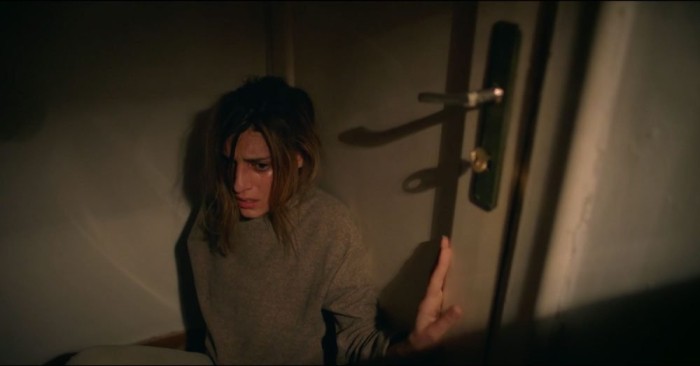
Are there any specific brand metrics that you’re monitoring?
Not really, we just felt that this was a message consistent with what we’ve been talking about. Another goal we had was to provide early warning signs to women, so we thought that if we even saved one woman through this, then we had succeeded. We’ve had reports of teachers devoting classroom hours to showing the film in class and discussing it with kids in high school, asking them how they feel about this film, and if they’ve ever seen this kind of treatment in their home. So it’s an educational piece as well, and aside from the buzz and the marketing success, we have contributed something good to society.
You are talking about something so sensitive and serious, how did you achieve the right tone?
In the beginning, the idea was to subvert our format – we have been telling love stories where boy meets girl, under the sun, it’s very idyllic, they fall in love, something separates them, they have to find each other at the end. So let’s begin like that, let’s make it a full cliché, romantic with 70s music, by the beach... And then make it dark. We wanted to simulate the way all these relationships start – in the name of love – and then look through the lens of the female protagonist at how they are trapped into this type of relationship.
We wanted to be very truthful, so we studied the testimonies of perpetrators and what they have told their victims throughout the years. We worked and crafted the script out of all these interviews and then we co-operated with Diotima to really bullet-proof what we were saying, so it was not fiction, but based on real facts and real stages of manipulative behaviour.
Then we hired one of the best Greek directors currently, Argyris Papadimitropoulos, who made a film a few years ago called Suntan, which dealt with a similar issue, a possessive man that goes to the edge with his love affair. We felt confident that we knew what we were doing, we were not doing something just to shock people. We were doing this to alert people. And really, the best drama puts a mirror to society.
It's a testament to how great this was that we never got to write the press releasePanos Sambrakos, Ogilvy Greece
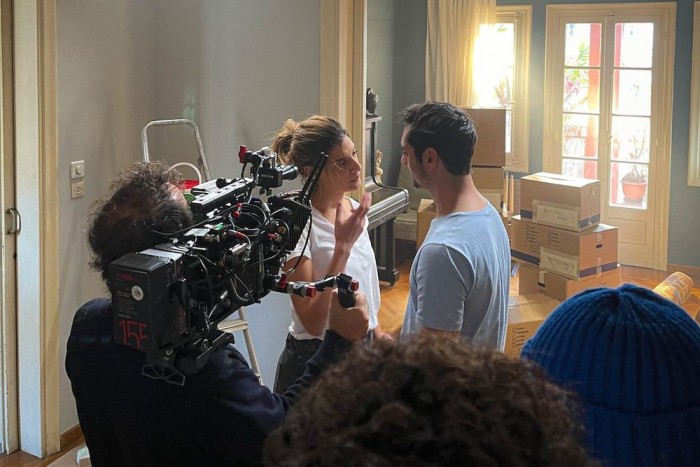
How far does Lacta’s relationship go with Diotima? Is it going to be a long-term partnership?
It was for this campaign. Lacta also donated all the sales of its chocolate on the International Day for the Elimination of Violence Against Women to support Diotima and their work. We’ve just started, but it’s a cause that we've now put on our badge, and we’re going to continue supporting.
What were the challenges of creating this campaign?
The biggest challenge was about how far we would go with violence in the film, and the fear of shying away from facing the darker side. So we were very careful to have a clear message, to really show that at the end, the woman is killed – without being grotesque.
You said that the uptake of this was very organic. Did you have any contingency plans if it wasn’t picked up by the press?
In the beginning, we thought about pushing this with some media on YouTube and Facebook, but in the end, it went so viral from the first day we didn’t really need to do that. Also, we wanted to build a PR campaign around this, but it’s a testament to how great this was that we never got to write the press release. It was picked up by all the press and then we wrote the press release. Once we cut the film, we had planned initially to release it on the International Day for the Elimination of Violence Against Women. But we felt it was so good, we called the client and said, ‘Listen, let’s launch it today, let’s have a four-day advance, and let it run.’
This campaign was tricky to get right and not offend anybody, but I think once we did it, everybody was on our side because we defended somebody that is being violatedPanos Sambrakos, Ogilvy Greece
Do you feel like this work takes more risks than previous Lacta campaigns you’ve worked on?
I think the Act For Love campaign [which invited people to ‘embrace all flavours of love’, and sparked a public discussion about diversity and inclusion and threats] was even more courageous because Greek society was very divided about it, so much so that there were threads for a boycott of the brand. At that point, we felt that we might have done some damage, but thankfully, sales increased [by 13.5%], because younger audiences are sensitive to these social issues and are more open-minded than my generation. This campaign was tricky to get right and not offend anybody, but I think once we did it, everybody was on our side because we defended somebody that is being violated.
What did you learn from this campaign?
To always be consistent but be brave enough to talk about the things everybody is talking about, but no one dares to put them up on the big screen, on TV, on YouTube. Greek society has been talking about [domestic violence and femicide], but no one dared to make a campaign out of it. It was Lacta, a chocolate brand that did it. If you are consistent, you have a right to talk about the difficult things.
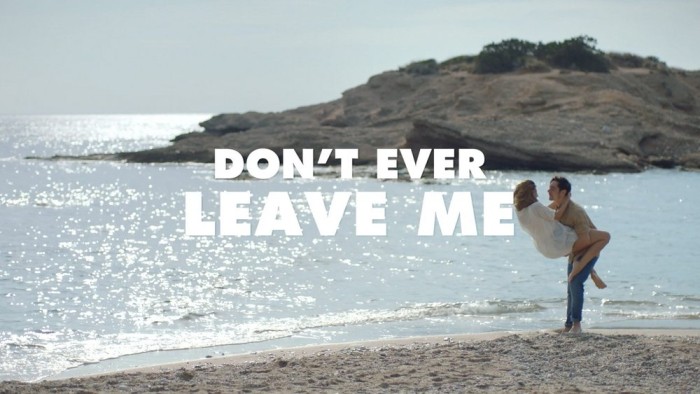
With that in mind, what is next for Lacta? How can Lacta keep building on this message in interesting new ways?
The next thing we’re doing right now is going back to basics, and really talking about love, in a broader sense, not just about romance, but about the love between a mother and her child, or about the love between two best friends. We’re doing a three-part web series and we are expanding themes around love. We need to bring a positive message now to people because we all alienated ourselves during the pandemic. We need to bring love back into our screens and into our lives.


